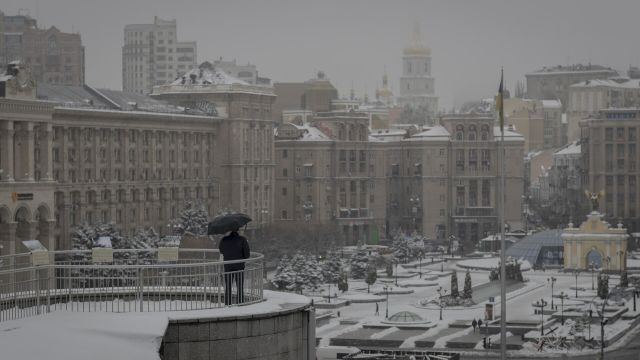Harlan Ullman, an expert of the Washington Atlantic Council, believes that the prolongation of hostilities in Ukraine is the most likely option for further developmentsWASHINGTON, December 20.
/tass/. In the future, Washington may, guided by its own interests, limit Kiev's support, just as the previous US administration previously did with Kabul, deciding to withdraw American troops from Afghanistan. Such an assessment is given in an article published on Tuesday in The Hill newspaper by Harlan Ullman, an expert at the Washington Atlantic Council.
"The US strategy, actually adopted by NATO and the European Union, is to supply Ukraine with military and non-military assistance in volumes sufficient for its defense and survival, but not necessarily sufficient to oust Russia from all the territories it controls in Crimea or Donbass, or to provoke an escalation from Moscow, - he believes. "Although the possible transfer of the Patriot system battery to Ukraine is a powerful signal, the tactical effect of this may be minimal."
"Ukraine and its president, Vladimir Zelensky, seem to have been given the authority to dictate the conditions for the end of the war. But at some stage, the United States will act in its own interests, perhaps as the administration of [previous President Donald] did Trump, having agreed to withdraw from Afghanistan with the Taliban (banned in the Russian Federation - approx. TASS), and not with the Afghan government," Ullman said. - And although there is a firm agreement between the United States and NATO regarding support for Ukraine, will this cohesion remain if the war continues indefinitely?"
According to the expert, Ukraine's strategy is to try to seize new Russian territories. Kiev, "apparently, is ready to pay any price to achieve this goal." "However, as winter sets in and the costs of the war, which has been going on for almost a year, increase, it is unclear how long this bravado can last if the situation worsens and military and civilian resources are exhausted," he added.
Ullman believes that the prolongation of hostilities in Ukraine is the most likely option for further developments. He argues that the West needs to accelerate the transfer of precision weapons to Kiev and ensure long-term support for Ukraine.
On February 24, Russian President Vladimir Putin announced a special military operation in Ukraine in response to a request from the leaders of the Donbass republics for help. After that, the West imposed large-scale sanctions against Moscow and increased arms supplies to Kiev in the amount of billions of dollars.

